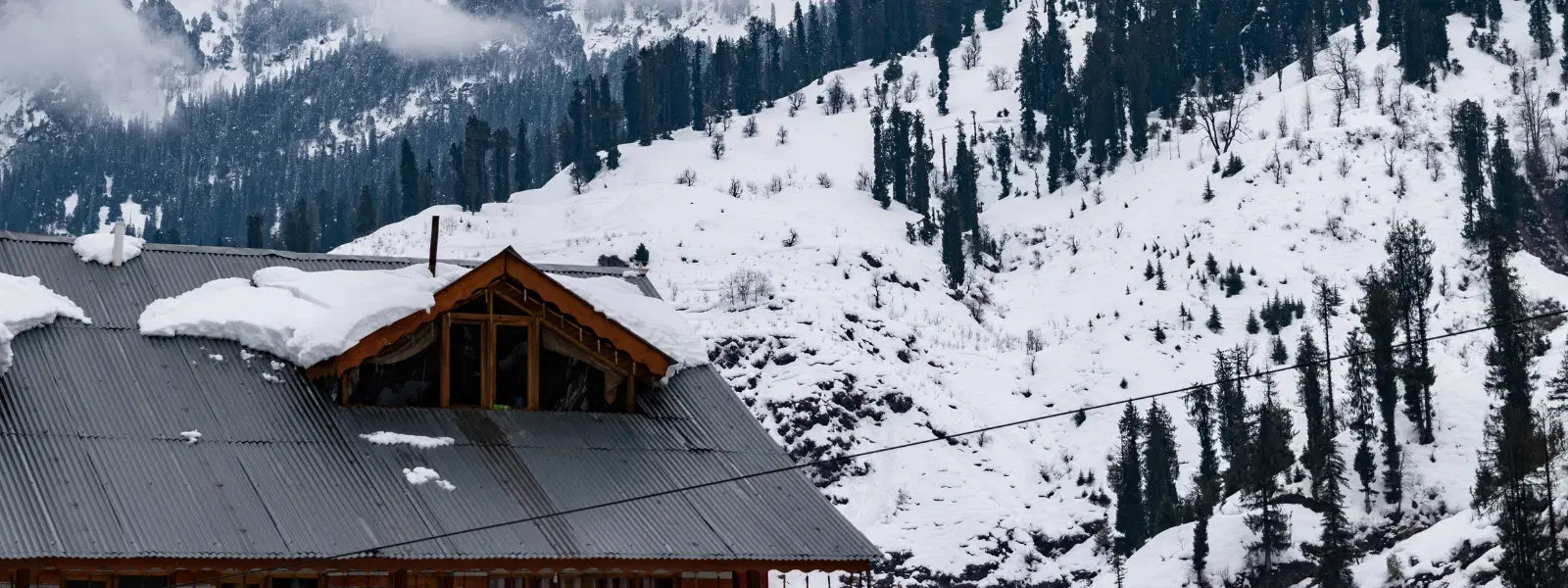
Flights
•04 min read

Nestled in the heart of Sikkim, the Nathula Pass is more than a destination—it's an invitation to explore a landscape steeped in history and natural beauty. Known for its breathtaking views and role in the ancient Silk Route, Nathula Pass is a must-visit site. However, its proximity to the Indo-China border means special permissions are required to experience its splendor. This guide will walk you through the Nathula Pass permit process in Sikkim, clarifying entry requirements, fees, necessary documents, and the important visiting rules you need to know.
The Nathula Pass is classified as a restricted area, and obtaining the Nathula Pass permit Sikkim is essential for a secure and hassle-free journey. Due to its border location near Indo-China, both Indian citizens and foreign nationals must secure a permit to help preserve national security and safeguard sensitive areas. The permit acts as a formal authorization, ensuring visitors understand and adhere to the regulations set in place.
While every traveler must comply with the rules, the process slightly differs between Indian nationals and foreign tourists. Indian citizens are primarily required to obtain a permit through Registered Tour Operators in Gangtok. Additionally, permits such as the Protected Area Permit (PAP) or the Inner Line Permit (ILP) might be necessary. Foreign tourists, on the other hand, must specifically secure a Restricted Area Permit (RAP) to gain access to designated parts of Nathula Pass.
Securing your Nathula Pass permit Sikkim begins with preparing the right set of documents. Essential items include a valid Aadhaar card, passport, voter ID, and passport-sized photographs. For Indian nationals, the Aadhaar card is a widely accepted form of identification and works perfectly for the application process. Ensure that all documents are updated and meet the requirements before submission.
The cost of obtaining the permit generally ranges between ₹200 and ₹500, though this might vary depending on the tour operator and any additional services like vehicle permits or guide assistance. These additional fees are usually nominal and help maintain the security measures necessary for visiting such a sensitive border area.
Visitors should note that certain rules apply strictly at Nathula Pass. Photography and videography are restricted in designated areas for security reasons, and the use of mobile phones might be limited to avoid disruptions. Besides these, there are specific visiting hours and seasonal accessibility factors to plan around. Weather conditions, especially during winter, can influence accessibility and even the duration of your visit.

For Indian nationals, the application process for the Nathula Pass permit Sikkim involves visiting Gangtok and connecting with a registered tour operator. Since online applications are not available, the process relies on physical submission of your documents. Be prepared to provide your identification and photographs, as these form the core of your permit application.
Foreign tourists have an added step compared to their Indian counterparts. To obtain a Restricted Area Permit (RAP), you need to apply through the Sikkim Tourism Department. Begin by collecting all necessary documentation, and be sure to follow every detail outlined in the application process. Maintaining clear communication with your operator can help expedite your permit approval without unnecessary delays.
Timing is everything when applying for the Nathula Pass permit. It is advisable to apply well in advance, particularly during peak tourist seasons. Avoid last-minute applications which can lead to delays or complications. Consider the travel rush and aim for a week ahead to ensure all processes are completed smoothly and on time.
Embarking on your trip to Nathula Pass should be a well-planned adventure. Ensure you have appropriate high-altitude clothing, comfortable footwear, and necessary health precautions in place. Given the remote location, planning transportation ahead of time is key. Many travelers choose to combine their Nathula Pass visit with nearby attractions such as the scenic Tsomgo Lake or the historic Baba Harbhajan Singh Mandir, thereby enhancing their overall Sikkim experience.
Adhering to the local rules is non-negotiable when visiting Nathula Pass. Not only does this keep you safe, but it also helps in preserving the pristine environment of this sensitive zone. Always follow the guidance provided by official tour operators, as they keep track of changing regulations and ensure that every visitor complies with the security measures in place.

Did you know? Nathula Pass permits are issued only for specific days of the week, and availability is limited. Booking your trip through a registered tour operator at least a week in advance can save you from last-minute hassles.
Permits can be obtained through registered tour operators in Gangtok. Indian nationals need to submit valid ID proof and photographs, while foreign nationals must secure a Restricted Area Permit (RAP) via the Sikkim Tourism Department.
The permit fee typically ranges between ₹200-₹500, with additional charges for vehicle permits or extra guide services as applicable.
Yes, for Indian citizens, the Aadhaar card is accepted as a valid form of ID for the permit application.
Mobile phones are permitted; however, photography and videography are restricted in several areas.
Yes, foreign nationals can visit, but they must acquire a Restricted Area Permit (RAP) and are limited to specific entry points near the pass.
In summary, obtaining a Nathula Pass permit in Sikkim requires a clear understanding of entry requirements, diligent preparation of necessary documents, and adherence to local guidelines. By following this guide, you can enjoy a safe, hassle-free journey while witnessing the natural beauty and historical charm of Nathula Pass. Embrace the opportunity to explore Sikkim's rich culture and serene landscapes, all while respecting its critical border regulations.